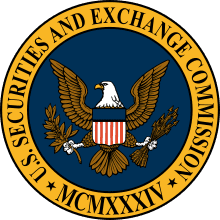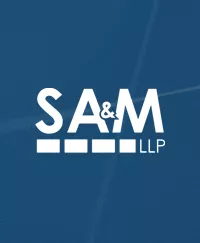
| Smaller Reporting Company Test | Current Rule to Qualify as Smaller Reporting Company | Revised Rule to Qualify as Smaller Reporting Company |
| Public Float Test | Public float of less than $75M | Public float of less than $250M |
| Revenue Test | Less than $50M of annual revenues and no public float | Less than $100M of annual revenues and public float of less than $700M (or no public float) |
The new rules also provide that if a company exceeds the thresholds listed above and therefore fails to qualify as a smaller reporting company, the company will remain unqualified until it meets other lower caps set at 80% of the initial qualification caps as of a date of annual determination. This is designed to avoid scenarios where companies enter and exit smaller reporting company status because of small fluctuations in their public float or revenues. For example, to qualify as a smaller reporting company under the public float test, a company would need to have a public float of less than $200 million if it had a public float of $250 million or more in the prior year and under the revenue test, a company would need to have less than $80 million of annual revenues if it previously had $100 million or more of annual revenues and less than $560 million of public float if it previously had $700 million or more of public float.
| Smaller Reporting Company Test if Initial Thresholds are Exceeded | Current Rule to Qualify as Smaller Reporting Company | Revised Rule to Qualify as Smaller Reporting Company |
| Public Float Test | Public float of less than $50M | Public float of less than $200M, if it previously had $250M or more of public float |
| Revenue Test | Less than $40M of annual revenues and no public float | Less than $80M in annual revenues if it previously had $100M or more of annual revenues; and public float of less than $560M, if it previously had $700M or more of public float |
______________________________________________________________________________
Jonathan Friedman is Partner at the law firm of Stubbs Alderton & Markiles, LLP. Jonathan advises a wide range of both public and private clients, including development-stage, emerging-growth, and middle-market companies as well as angel investors, venture capital firms and strategic investors. Jonathan’s practice focuses on corporate finance, mergers and acquisitions, securities law, intellectual property licensing and general corporate and business matters. Jonathan also has experience forming venture capital funds. Jonathan has represented corporations and other entities in a variety of industries, including Internet and e-commerce, apparel, medical devices, entertainment and high technology.
Jonathan has substantial experience managing strategic transactions, including private equity and debt financings transactions, mergers and acquisitions in the public and private markets, offerings by public companies and angel and venture capital financing transactions. In addition, Jonathan counsels companies in connection with SEC reporting requirements and registrations, federal and state securities laws, corporate governance issues, joint ventures and strategic alliances and commercial contracts. Jonathan also has expertise in advising companies in their formation process.
As part of his practice, Jonathan facilitates cross-border financings, mergers and acquisitions and expansions by companies into new markets and works to promote bi-lateral trade opportunities between Canada and the United States that will result in the job creation, investment connection and trade partnership support.
To learn more about our Public Securities Practice, contact Jonathan Friedman at
